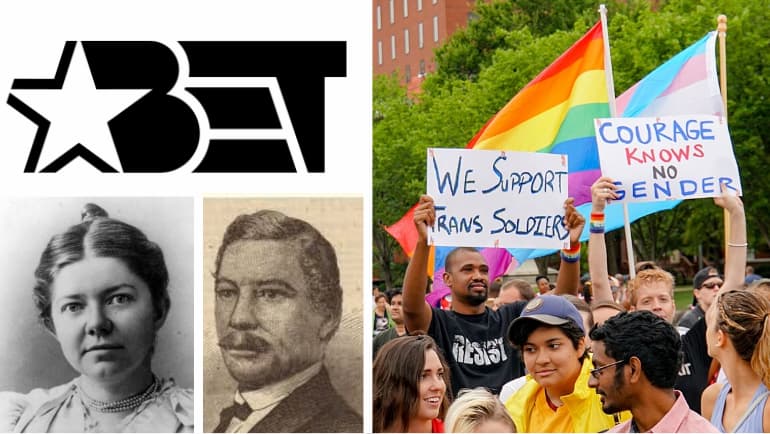Check out This Day in History for Oct. 30 in MainStream’s daily look at significant progressive, intersectional historical events.
1503: Queen Isabella of Spain bans violence against Indians in the Americas. “The queen and her councillors were more ready to recognize the rights of the Indians than was Columbus; she ordered some of those he had brought back as slaves to be released.”
1831: An event that set back anti-slavery efforts for decades ended on this day, when former slave Nat Turner is arrested after eluding authorities for 10 weeks. Turner had led about 50 fellow Blacks in Nat Turner’s Revolt, the overnight killing of 60 white people in Southampton County, Va., starting with his master’s family. Turner, a preacher whose son had just been put up for sale, had hoped to inspire an uprising against slavery. Retaliation led to the murder of an estimated 100 Blacks throughout the region and triggered many southern states to strip slaves of civil liberties.

1868: John Menard of Louisiana, and formerly of Illinois, becomes the first African American elected to the U.S. Congress. He also becomes the first African American to address the chamber while in session, when he takes the congressional floor to debate a colleague’s contesting of his election.
1896: The first-ever symphony written and published by a woman premiers, with Amy Beach’s Gaelic Symphony. Beach will become a prominent New England composer, tour Europe as a pianist, serve as the President of the Board of Councillors of the New England Conservatory of Music.
1938: Increased focus on radio broadcast regulations grows when War of the Worlds by H. G. Wells is broadcast on CBS, narrated by Orson Welles. “While the degree of panic and the exact number of affected listeners remain debated, the incident significantly impacted public perception of radio’s influence and prompted widespread media coverage, investigations, and discussions about potential regulatory measures.” Wells would apologize the next day.
1954: The Defense Department announces the end of all racially segregated regiments in the armed forces, three months after President Harry S. Truman signs an executive order establishing the President’s Committee on Equality of Treatment and Opportunity in the Armed Services and also “equality of treatment and opportunity for all persons in the armed services without regard to race, color, religion, or national origin.”
1976: The United Church of Christ elects its first-ever — and only — Black president, Rev. Joseph H. Evans, who will serve in the post for a year before returning to his previous title as National Secretary of the Church. Evans will stay in that post until his retirement in 1983.
1991: BET (Black Entertainment Television) , a 24-hour channle founded by Robert Johnson in 1979, becomes the first-ever Black-owned company listed on the New York Stock Exchange. Its stock value grows from $9 million to $475 million in one day.
2017: A ban on transgender people serving in the military imposed by executive order from President Donald Trump is blocked by a federal judge. The ban would have barred transgender people from enlisting in the armed forces, require current members to obtain waivers, and discharge those who don’t get a waiver. The U.S. Supreme Court allows the ban two years later, President Joe Biden revokes it in 2021, and Trump reinstates it in 2025.
Photos courtesy of Wikimedia Commons

